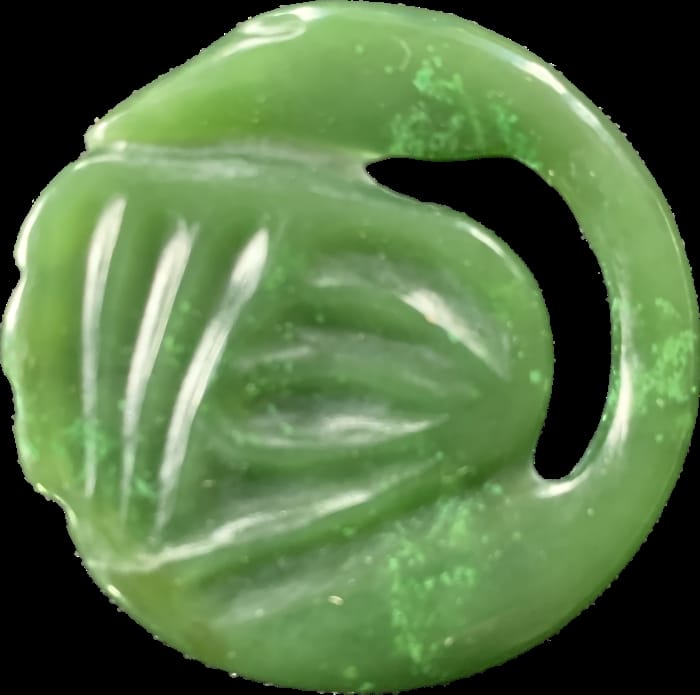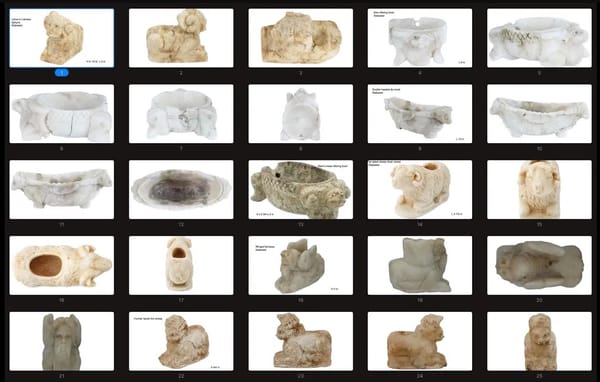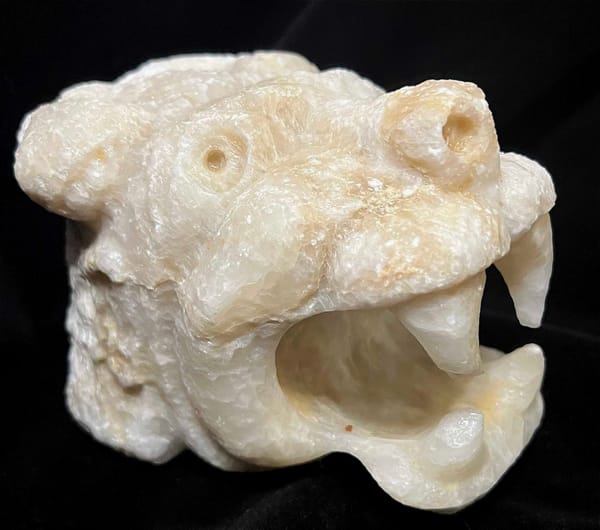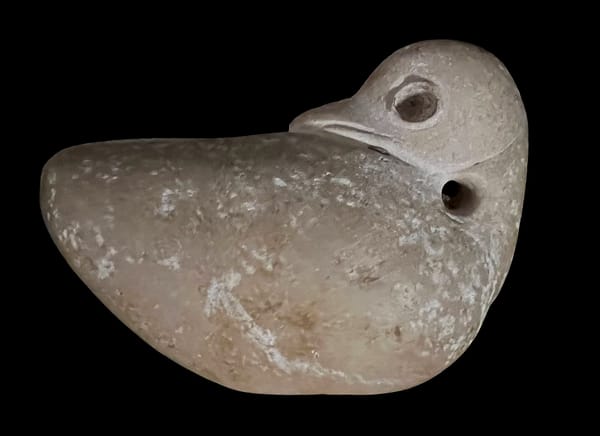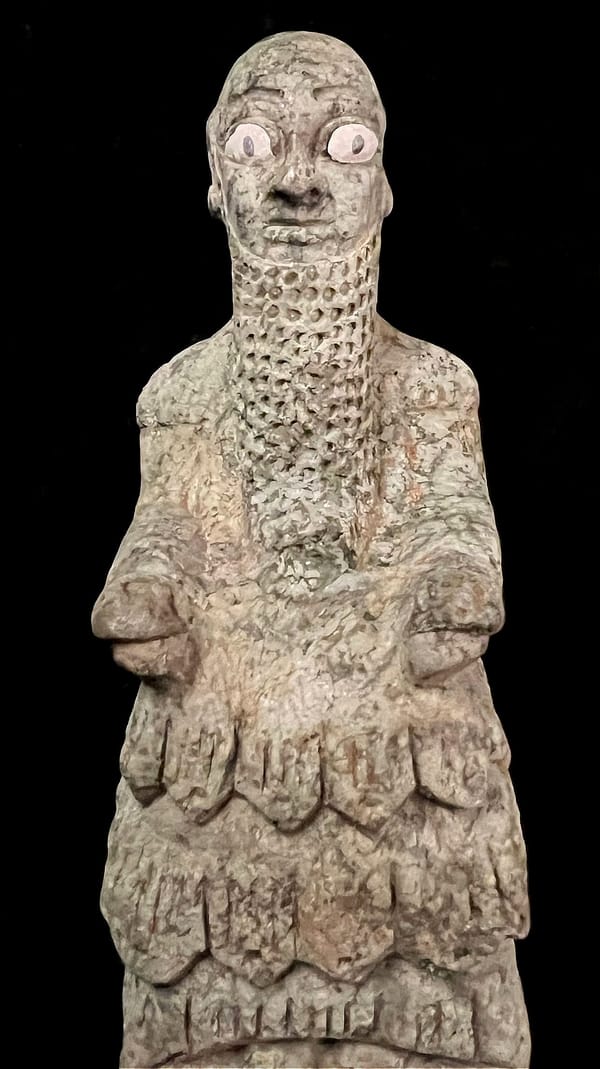Spiritual Binaries and the Cultural Evolution of Gender Roles
Today Dr. Josh Stout discusses his theories on Spiritual Binaries and the Cultural Evolution of Gender Roles.
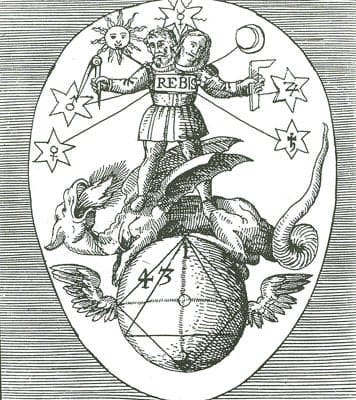
Please scroll down for many informative links below transcript. This is lightly edited AI generated transcript and there may be errors.
Eric 0:14
Welcome to season two episode four of the Mind Body Evolution Podcast. Today's episode is slightly dense, so I asked Dr. Stout to give me a little introduction to what the episode was going to be about, and I surreptitiously recorded it, which is why at the end he says, Let's get this recording going anyway. What follows is Dr. Stout's introduction, followed by our regular podcast. Enjoy.
Dr. Josh Stout 0:49
like we were talking about last week. I wanted to sort of continue in the last weeks. We were talking about how resources and environment can change how gender roles work, both, you know, from from monogamy to polygamy or from you know, there is there is there is, you know, the baboons and how they change their society relation to resources. And then connect that to the way we've seen the binary of gender from the period of the caves through, say, the Middle Ages, looking at things like the Demi Argos and Alchemy and the nature of of binaries in alchemy and then alchemy, the project of alchemy, of trying to bring genders together into this unified whole and how the project of certainly the church in the Middle Ages was trying to separate anything female from the from the divine, and that there was been these tensions for a long time. And how what was this sort of primary creative force in the Greeks, the Demi Argos? It was a creative force for good. Became a creative force for evil by the Middle Ages. And basically what you mean your your your high concept would be the immutable doesn't exist. Yeah, no, things are immutable, but but there is like there's only certain ways to think about things and anything that you think is unchangeable eventually will be proven will change and change, but not necessarily in time and not necessarily for the good.
Eric
Right? Exactly right.
Dr. Josh Stout
You know, hopefully we're heading in a good direction now. You know, unless you've got a change that you feel like makes you feel like, you know, chaos reigns. Well, that's that's the that was what the whole the whole purpose of it was was trying to organize out of the chaos, certainly what the Greeks thought about. But we should start recording before we get to end of this. Okay?
Eric 3:12
Today is Friday, January 26th. This is episode four of season two. Amazing. Hi Josh.
Dr. Josh Stout 3:19
Hi Eric.
Eric 3:20
So title today was really long.
Dr. Josh Stout 3:24
It was a long title. Yeah. So I was I was thinking about what we talked about last week with the Barbie movie and gender roles in general and, you know, primate mating systems and how we're entering a period of sort of flux in human gender roles and that often the people who are sort of reactionary against this, I like to say, well, biology is binary and biology is fixed. And I've been thinking about that and how within biology there is absolutely flux within gender roles. And there are times when I inflexible gender roles can lead to two problems. And so I'm going to sort of start off with some stories within biology, but then I want to get into how how are our notion of divinity and our relation with the spiritual world has been gendered for a very long time. And the way gender roles within within our sort of evolution of cultural consciousness have have changed over time. All right. So I was thinking about killer whales, okay? And killer whales are like us. They have culture, they have culture that can determine their approach to resource acquisition. And so in the Pacific Northwest, there are two main major different killer whale populations. One of them is hunting sea lions and other marine mammals. You know, wouldn't say no to a beluga whale. And the other one is our salmon specialists, and they haven't interbred for a million years or so. They're they're a completely separate population.
Eric 5:24
One population will eat a whole bunch of different things and another one will just eat salmon.
Dr. Josh Stout 5:29
Any salmon you want, they're fish eaters. All right. But the big fish that are in that area are salmon, but they're not going to say determine which salmon they're eating. Okay? And the other ones are going to eat any marine mammal, but not a salmon. So they've become specialists. They know what they're doing. They have a culture that enables them to do this. They have a culture based on their on their resources and the are their their the culture based on the resources that it's focusing on. Salmon has not been doing very well because salmon stocks have been going down. It's a it's a little bit further south group. So they've been impacted by global warming pretty badly. So the Pacific Northwest population of orcas is is dependent on salmon and is in decline. And one of the reasons has to do with their cultural I stereotypical gender roles. A large bull male orca is much bigger than the females, so much like a silverback gorilla or some of these other mammals where you see males fighting each other for access to the females. And if you're a big male lion and you're twice the size of the females, everything's about fighting the other lions to access to the females and male lions. Also very stiff stereotypical gender roles. They work with the females to get prey, but it's mostly the females that do all the actual prey because the males are simply too big to hunt them down. And this is something that genetically works as long as the females get more food for that male lion, they will spread the genes around by having offspring and being successful. So in these orcas, what has happened is the male orcas are too big to catch salmon and their their mothers take care of them. So we'd understood that menopause was something that was rare in the animal kingdom. You want to have babies for as long as you can in your life. And in
anthropology, human evolutionary theory, the idea was that menopause allowed older, sort of a matriarch of a family to take care of the younger babies. And it was decent evidence that if even in the modern world, if a mother lived near her mother, her offspring would have a larger chance of survival. Even in the modern world, survival like really cut and dried stuff. If the mother lived within 50 miles of her mother, that there was there was a there was a major effect that was measurable.
Eric 8:18
You know, amazing.
Dr. Josh Stout 8:19
You had to look at a lot of people to find it. It's not like everyone who doesn't live with their mother. Babies die right? It's it's a tiny actual effect, but it's measurable and it's real. Yeah. And so that was our understanding of of of where menopause had come from, that it was this evolutionary technique to have older women stop paying attention to their own babies, but make grandchildren, basically. And this was an evolutionary advantage. And what the what the killer whales are doing is their mothers get to the point where they're too old to have babies. They go through menopause, unlike almost every other species. And it's interesting that this one is happening in one of the few species out there with culture, with traditions. Right. So these these these orcas are singing songs to each other. They have languages, they communicate. And their.
Eric 9:09
Song. I was going to ask, how do we know this? You answered that question.
Dr. Josh Stout 9:12
Yeah. And their songs are different from the other groups, the ones that don't that don't hunt salmon. They have their own traditions. They have their own culture. And when a female orca is no longer able to have babies, she's taking care of her adult son who can't hunt for himself very successfully because the salmon just are too They can turn too quickly and eat.
Eric 9:36
While they're much more.
Dr. Josh Stout 9:37
Agile. They're much more agile. Big bull orca can outrace a salmon but can't outrun it, so the salmon will always get away. And so what happens is, is his mother will go along, catch a salmon, bite off the head for him, and then leave the body floating out behind for the son to pick up. So he's basically she's basically like cutting a cross off his his his his breath. But she's doing this because this enables her to have a successful reproducing son who's bigger than all the other sons and is able to spread her genes further on. So evolution has favored this cultural adaptation. Other orcas go through menopause but are not required in the same way this survived in this particular culture because they were hunting salmon and the big bulls couldn't couldn't compete. They would have had to hunt something else. Yeah. And in this particular culture, it worked because the mothers were then able to pass on their own genes by protecting their sons and having their sons be reproductively successful. However, as the salmon stocks have gone down, I as it's becoming more and more difficult now, we have these sons that are completely dependent upon their mothers. When their mothers die, the sons die usually within a year, even though they are still middle aged. They're not able to fend for themselves well enough to survive.
Eric 11:05
They starve.
Dr. Josh Stout 11:05
To death. They end up starving to death, usually within a year of their mothers dying. And their mothers can live to 6080 years old. So this gets them into their fifties and sixties. But still, they they they they don't survive.
Eric 11:18
They are dependent their entire lives.
Dr. Josh Stout 11:19
And this is entirely a cultural thing that they have built for themselves. But they've reached a dead end. They can't switch into another mechanism because their their their gender stereotypes are so fixed in this particular thing, they would have to switch to a new resource and they don't have the cultural wherewithal to understand how to do that. Everything they do in their lives is about hunting salmon. Everything is about the salmon. They can't choose a different path. They've been on this path for a million years now. They have very strict gender stereotypes, and without something changing in their culture, they can't get out of this dead end they've reached for themselves. And so I was thinking about that in relation to human gender stereotype, so that we often start associating the way we are as being absolute situation. And we could get ourselves into a dead end if we're not careful in.
Eric 12:08
What we are. We are often told that that is the situation.
Dr. Josh Stout 12:12
Yeah. Exactly. Yeah. Yeah. And that flexibility is something that is built into the culture, right? You don't have to actually have a genetic change. You could just change it by teaching your children differently. But because we often see these things as biologically absolute, we don't realize that they're amenable to, to to cultural differences. And that in the natural world, these are usually based on on resources. But we now live in a world where with with in many ways abundant resources, in other ways, limited resources, things like university positions or good jobs. These are limited resources or apartments. These are all limited resources in the world we've created. It's not because they're limited in an absolute way. We've created an artificial limit to them. And so this is in many ways driving the way our culture works. You know, there is no limit to the number of apartments we could build, but we only build as many as we need, I guess. And what need is always sort of at the maximum.
Eric 13:20
Level, we will always pressed need.
Dr. Josh Stout 13:22
So I wanted to talk a little bit about just exactly I wanted to talk a little bit about how we've related to gender roles within human culture, really right from the very beginning. The first people who are trying to understand in a larger sense what cave paintings were, They're not just that's a painting of a horse, right? You could just everyone gets that part. But why is there a painting of a horse there? Why is there a mammoth? What are these things for? And the sort of the two competing ideas were it was either hunting magic or it was about gender. And so there was one person who, in my opinion, probably overly determined what everything was. But he did looked at every cave painting and said it was either male or female and divided everything into this very strict binary of iconography. And while I think he was doing this a little bit too much, I don't think he was completely wrong. I think people were trying to get at what are these gender binaries? How do they work together in the natural world? They were trying to understand themselves in many ways. So they would build these things that were clearly an amalgam of male and female joint together, showing male and female power interacting the Minotaur and the lioness was the classic one that I've mentioned before together, forming almost a yin yang kind of shape that they understood these as as a dualistic but unified and with blending between the two. There was no hard line between the two.
Eric 14:54
Mm hmm.
Dr. Josh Stout 14:56
This idea, I think, gave rise to in later cultures. Much of our understanding of religion, of goddesses, of gods, how they relate to each other. You have you have the male and the female, the sky and the earth. I you know, the water and the shore. All of these things where you have mixing of two things coming together creates the offspring, the creation. So this is something that's very deep in our understanding of biology. Right. Exactly. Of of of binaries coming together and in the mixing, creating something new. Right. This is how children happen. And so these are the kinds of things that we think of as absolute, but they are by no means outside of our culture. And culture can definitely change. So these things came out of the caves, became more formalized religion. At first you would have had goddesses and gods having their own domains, but sometimes one would steal from the other. So Inanna stole the codes for civilization from the Sun God and actually took them to herself. And she had symbols like the owl that we later see in Athena. So all of these things were flexible. She divided almost into two separate goddesses, the goddess of love and the goddess of of wisdom and technology that became Athena, who, by the way, was a virgin. Right. The Parthenon. Parthenon means Virgin. The Parthenon two to Athena was the place of the virgin. So this we started to separate the idea of the sex goddess and the goddess who doesn't have sex. And that became really important in our culture. The idea of this goddess not having sex and became Mary became a lot of this non reproductive female version. But in the the original idea of the beginning of everything in in both Greek and Egyptian thought there was this sort of unmixed whole that gave rise to the divisions between everything. And this was often seen as if not feminine, at least a mixture of feminine and male. It was not a male. God would sticking out his finger and saying, Let there be light. This was.
Eric 17:29
The Dao.
Dr. Josh Stout 17:30
It was like before the Dao. The thing that came, the thing that the Dao came from or in in. I really don't know that much about Hinduism, but the breath gives rise to Brahma. The thing before the division before even the thing that gets divided. Mm hmm. That the first thing that that was what Plato called the Demiurgos. It was the thing that starts everything. Aristotle's prime mover, the thing that, you know, you've got a whole bunch of your dominoes set up. What pushes the first domino over, gets everything going. The very beginning, the the universe before the universe, which you can't talk about because there is no before time that, that, that, that thing, whatever that is, was the Demiurgos' turtles turtles all the way down. But it was not turtles all the way down. There has to be a thing. Right. And so the Demi Argos was what created order out of chaos. It created the cosmos. Cosmos has the same roots as cosmetics. Making beauty. Chaos was the sea of undifferentiated uniformity in modern cosmology. It's essentially what there is before The Higgs boson field gives everything its individuality. It's this.
Eric 18:51
Nice.
Dr. Josh Stout 18:52
Sea of everything nice that you then get differentiations from. And so this was what was coming out of Neoplatonism It's this idea of the organization of the cosmos is what brings order and beauty to everything. And it's part of what natural philosophers are there to do, to understand the universe and bring order and beauty to everything in in Egyptian thought there was this first undivided god of magic which mean meant activated bodily energy, which is interesting. So she he basically was she and he represented what happens when opposites come together and create energy. So we understand this today in physics, you know, you need getting a plus and a minus to have actually energy happen. You have to have the top of the hill in the bottom of the hill where you don't have any energy potential. So he was energy potential before or anything happened, which is why you don't hear about him a lot in in Egyptian religion, because he's just assumed he doesn't he doesn't get drawn much. He doesn't get represented much.
Eric 20:04
Just has to be there.
Dr. Josh Stout 20:06
He just has to be there. He's before Ra. He's before all of this stuff.
Eric 20:11
He's What's the name again?
Dr. Josh Stout 20:12
Heka. He's here. He's the male in the female. He's activated bodily energy. Your car is your spirit. So your Ka is what you know, is is, is trying to be preserved when you're making a mummy and burying someone under a pyramid. Heka is the activated Ka. So again, it's sort of sort of like Chi it's these opposites that have come together, but when they're split apart again, then you get male and female, you get all these potentials. And in Egyptian stuff, everything was always mixed. And then always splitting and always splitting into humans and animals, males and females, mating day, etc. All of these things were, were together and then splitting them together and splitting this became the Egyptian holy family. It became it became Hathor and Horus. It became a sorry isthis. And Horus ISIS basically is Hathor in many ways. Hathor has the has the horns of the of the cow. ISIS also has the horns of the cow. Hathor was the house of Horus, which means where Horus came from essentially was where the name hath or comes from. ISIS is the mother of Horus. Horus is the infant child who represents the coming together of the male and the female, and then the infant child. Is the actualization of this coming together to make this infant child.
This was then represented in Greek mythology because Greeks didn't completely get the Egyptians. They were really into them. But they they they they weren't they didn't always understand where all these mythologies were coming from. So they started trying to build their own secret mysteries. This was before we get orphic mysteries, the idea of resurrection. So the Osiris resurrection happening is then copied in the resurrection of Dionysus in the Orphic mysteries.
Dionysus is wrapped inside the Orphic egg. This very beginning divides into two things. So this this became the idea of things being wrapped into a cohesive whole and then emerging from something as it hatched, hatching from the egg. And we see this over and over again in in Greek religion in when the Greeks tried to take these concepts of this infant Horus being the actualized version of male and female coming together, they then turned him into this new God harp Socrates the God of Secrets, because in Egyptian hieroglyphics, the the hieroglyphic for child is finger over the lips. And the Greeks saw that as a secret.
Eric 22:55
I don't like the way this is going.
Dr. Josh Stout 22:57
Things. Well, things get a little weird for a while. And so Harp Socrates was the infant that saw Aphrodite and Eros getting together, and it was had to be kept a secret under the rose. Subrosa meant the thing everything was hidden over. And so her Socrates became the holder of the secret of these two forces Eros and love being joined together, which was forbidden because in their case it was incest. And so this became the symbol of secrets right through the rite, through the Knights Templar. When the Knights Templar wanted to mark a document as secret, they had what had been sort of taken from these Egyptian ideas of unity of two sides and essentially a cult of RA through the Greeks, and then use that as their symbol. And this this was I, I, I'm sorry, I've lost the name.
Eric 24:04
What was.
Dr. Josh Stout 24:04
This? Abraxas. Abraxas abrasax, Middle Middle Ages. They got confused about Greeks in turn.
Eric 24:12
And what was the symbol.
Dr. Josh Stout 24:13
So what the symbol was originally was a picture of Ra with two snakes to it next to him. And then those snakes joined with Ra to become two snakes with RA coming out of the middle. Basically, this is the same symbol that we have for Starbucks. So. So you have the mermaid with the two snakes. It was like that the joining of two things and that this joint symbol was the origin of magic was the origin of everything and was also the symbol for secrecy that there's this joining together of of of concepts of ideas. And then the thing that everything then progressed from the unknown joined thing at the very beginning. And by the time this got let's go back a little bit again. We'll go back to Alexandria for a moment. So okay, so so so these concepts were coming out of early Gnostic Christianity and the idea of maybe the universe wasn't one thing but was two things. And so the Gnostics were very much into Manichaeism the idea that there was two worlds a real world and a spiritual world and good world in a bad world. There was a group in Alexandria in the in the Gnostic period, so Christian Gnostics, but working in in a Egyptian context took this symbol of RA with the two snakes and made Abrasax their their their main deity. So the idea was the Ouroboros - sorry - not Ouroboros. The Demiurgos verses - the Ouroboros is unrelated yeah - the Demiurgos had given rise to this division and the Demiurgos’ son was Abrasax i.e. Hathor and this was a basically a way of relating the idea of God with his son Jesus to Egyptians ideas of their gods and their son and Greek things and their gods and their son. And the idea of having this actualized thing that had come out of a duality. So in Christianity anyway, we left behind this idea of duality with it was it was just the father. There was no mother, and Mary was certainly important, but she herself was not a goddess. Jesus was entirely the same as the father, entirely part of the God. And this is exactly what the what the neo platonist would have thought.
Eric 26:45
Thought linked to linked by the Trinity.
Dr. Josh Stout 26:46
The right. There was no there's no separation, right? There's no separation. And so these these were the ideas that had come out of, out of the Assyrian culture where you had the God and the energy from the God creating the king who was the personified God on earth. And so that was Jesus, the Holy Ghost and God above. So that was Ashur, the hand of Ashur.
Eric 27:10
But this did all start as a combining of a male female energy. And now it's devoid of.
Dr. Josh Stout 27:16
So these are all different ways that cultures have thought about these things. Yeah. By the time it gets to the Middle Ages, you get what are called the Albin Jensen's or the Cathars. And this was a Gnostic group, particularly in southern France, that thought that there was the world we see around us, which was entirely evil and a good spiritual world which was actually made by God. And so by this point they saw the Demiurgos as essentially demonic as something evil that had created the world, the physical world that we encounter.
Eric 27:49
I used to love the Gnostics. How did this happen?
Dr. Josh Stout 27:52
This in the in the late Gnostic world, we'd gone from a we'd gone from a Greek concept of the origin of the physical world as being good, as being the origin of all good things, as being, you know, arranging out of chaos, too. By the Middle Ages, everything physical was bad. And so this was a rejection of that sort of female creative principle, or at least the unified creative principle. And so this had now separated these two things. That was the spiritual world, which would be the God before the Demi Argos that created our spirits, our souls. And we were trying to return to him. And then there was the Demi Argos, which created the real world, which we should reject and avoid procreation, avoid producing children. And so they they they like the scenes, encouraged being celibate, but only only after you reproduce. So they understood that it was reproduction was still important. So this this kind of movement from a a understanding of of of of gender being both defined but also unified together and that procreation comes out of this unification and out of this blending and mixing and that all energy and magic and, you know potential comes from the blending of opposites is a pluses and minuses.
It runs right through, I think, human history right from the very beginning of the caves, right on down through. And one of the interesting things that I, you know, recently come to understand is how this relates to alchemy. I we often think of alchemy as a bunch of crazy people trying to make gold.
Eric 29:48
And at least that's the way it's portrayed.
Dr. Josh Stout 29:50
And that's certainly the way it's portrayed is the way I learned it when I was studying philosophy. It was the idea is if you live in a Catholic world where the wafer that you eat is the actual body of Christ, you have what's called transubstantiation. The substance of the wafer is part of the substance of God himself. And so you're actually eating God when you.
Eric 30:20
Eat that wafer. I've never really been able to be cool with that because that's when you think it through in this little creepy. But anyway.
Dr. Josh Stout 30:30
One easy way to be think about it is nothing is not God and God is infinite. So everything has all of God in it. But that's a separate thing.
Eric 30:38
Well, yes, that does something else entirely.
Dr. Josh Stout 30:41
Something else.
Eric 30:42
Entirely. We can go there, but that's like.
Dr. Josh Stout 30:44
Any piece of infinity is still infinity.
Eric 30:46
Let's have that conversation.
Dr. Josh Stout 30:47
A different time. So we thought that was that alchemy was all about that, that you take, you take these accidents is what the medieval philosophers called them, accidents or what you would call color or, you know, temperature or all the things that we notice about thing, Right. Smell the things you can touch the hard surface or the soft surface. These are what they would call accidents. And then substance is the actual thing that has these accidental qualities. This is how the medieval thought about it.
Eric 31:18
Accidents are essentially what's manifest from a thing.
Dr. Josh Stout 31:21
Right. So the way transubstantiation works is it keeps the accidents the same. That wafer doesn't taste any better. And you've just changed the substances.
Eric 31:33
What a beautiful what a beautiful way to make anything happen.
Dr. Josh Stout 31:37
To make. Yeah, exactly. To make anything happen. And so the way Alchemy is generally described is it's a spiritual approach to magic where you try and turn things that have lesser qualities into things that have quite higher qualities in the same way that the wafer is transformed into God. And so you could just instead of changing the substance, maybe you can change the accidents without actually having to change anything.
Eric 32:02
But but isn't isn't that I mean, I don't know anything about this, but isn't the wafer isn't the whole point of that? It seems to me that the wafer is changed into God in your mind. No, they're not real. It's real. It's real, actually. Really, It's.
Dr. Josh Stout 32:17
Really.
Eric 32:17
Real. Doesn't matter whether you believe it or not.
Dr. Josh Stout 32:20
Yes, exactly. Which is why it's used in black magic. A consecrated wafer is more important than just a wafer. You can't just steal away for you have to get one that's already been blessed. If you then want to do your black magic normally using.
Eric 32:34
Glass and then immediately ingested.
Dr. Josh Stout 32:35
Exactly right. But if you want to really, you know, be high, have apostasy, stand against God, then you have to get something that's actually is God and that's a wafer and you steal one of those. Now, now you've got something you can work with your black mark.
Eric 32:49
Fascinating. Fascinating. Yeah. Anyway, so I'm sorry to interrupt.
Dr. Josh Stout 32:51
So. So there's there's this huge world of trying to manipulate these sort of potential AI deities before things actually come, before there are the accidents, before the division, before you have hot and cold, male and female, left and right. You have this unified whole from which anything can be produced. And so that is why you can combine the substance of a wafer and the substance of God, because you have everything is one thing, essentially, and this is what the alchemists were trying to work with. They're like, Well, since everything is one thing I can turn led into gold because it's just like I just make it a little bit shinier and more yellow and suddenly I have gold.
Eric 33:31
Change the accident.
Dr. Josh Stout 33:32
Change the accidents.
Eric 33:32
of the lead and make it into gold.
Dr. Josh Stout 33:33
Yeah. And I don't have to really change anything at all. But when you actually look at alchemical texts, that wasn't really their project. They were definitely interested in gold, but they saw gold as gold and silver as the sort of exemplars of the sun in the moon of male and female, of the two powers that in magic you put together to make something new. So just like the the, the magic in the caves was taking the male and the female to produce something new, either through hunting magic, producing more animals to hunt or producing something new in the culture, making, making a unified group of male and females coming together to make something new. This this was happening you know, in in in the in the in the alchemical sense of you would take silver and gold and you would mix it with acids and mercury. And these were seen as the as as the as the king and the queen, the mother in the father dying, rotting. This was dissolving in acids. And then the mercury. Mercury was always associated with Hermes. Mercury, the goddess, the God of communication, of carrying things across something. You know, if we think about something is trans mercury is the one that brings things across. Mercury was often seen as not entirely male, but having a mixture hermaphrodite Hermes and Aphrodite together forming this. This whole is a hermaphrodite. So this idea of trans formation of being trans was directly related to the substance mercury. And so you would put mercury in an acid bath of gold and silver, and you would get what's called a mercury amalgam. Mercury amalgams take metals. And they basically it looks like something growing out of the metal.
Eric 35:34
Yes, we'll have to we'll have to post links to this.
Dr. Josh Stout 35:36
Yeah.
Eric 35:37
It's you have to see it.
Dr. Josh Stout 35:38
You have to see it. It's easier with with with aluminum, a mercury aluminum amalgam is amazing. It grows in real time. But they were making things that would have been moving on their own. They would have appeared to be alive and they would have grown. And so the idea is that the the the king and the queen would enter their bed, they would die, they would rot, and from them would grow this new thing that was bigger and more productive than the beginning. So if you were greedy, it meant you got more gold and silver. But if you were thinking about it in a spiritual sense, it was this, this unification of of of the gold and silver of the king and queen that produced this new thing that was more than what you started with.
Eric 36:19
I'm sure in that day and age, if you had shown me that, you could have sold me anything after that.
Dr. Josh Stout 36:25
Oh, it moved and grew.
Eric 36:27
Anything.
Dr. Josh Stout 36:27
And was made of metal. Yeah, Yeah, that's pretty impressive.
Eric 36:31
Been like, Yeah, you know, stuff exactly.
Dr. Josh Stout 36:34
So this is why alchemy was this long term project and it was always.
Eric 36:39
But but what you're saying is they weren't actually trying to turn lead into gold. They were trying to spiritual really improve what the world themselves.
Dr. Josh Stout 36:48
Yes. Through through a unification of male and female that would produce this new thing. The the true being that was this combination.
Eric 36:58
Did they know that this was a parlor trick or did they think they were creating something for the world.
Dr. Josh Stout 37:04
Both by by let's say, the early 17th century, It was already seen as a parlor trick by people who knew what was going on. But Newton was very involved in this. He absolutely believed in these things, and he was a very serious person. He was inventing physics and math, basically, You know, he was doing calculus. He was also put in charge of the of the mint because he knew when something was gold or not gold. He actually got put in prison. Once when he was done, there was there's this cool thing called the trial of the Picts, where you were where where they would take all the coins and put them in this big box called the picks. And then periodically the coins would be taken out and tested. And if the head guy in charge of coins was on trial, literally, and if the coins turn out to not be as much silver as they were supposed to, he was sent to prison. And so Newton got sent to prison because his coins did not pass the trial of the picks. And then he had to show them that using his analytical techniques, which were better than theirs, he got the right answer. So he was absolutely doing alchemy on these things. He was using mercury to dissolve this silver so that he could then get the pure silver out of it. And he was weighing it before and after, but he was also busy inventing chemistry. So this is what chemistry and alchemy were dividing. But for, for, for Newton, it was absolutely a all the whole thing was one project. He was trying to figure out what this cosmos was, what had come from this early, undivided world. So everything.
Eric 38:37
What a time that must have been.
Dr. Josh Stout 38:38
I know. So. So he was trying to recreate the undivided world this this gold and silver chemically. He was trying to understand when things were mixed together, what happens when you divide them. So he was sending white light through a prism and dividing it into the colors. He's the one that came up with seven colors. It could have been arbitrary. There's either, you know, billions of colors or maybe there's three colors. But he said it's seven for the same reason that we have seven notes, because eight is infinity, because you return back to the beginning again, You were at the beginning of the octave. If you're this is coming from Pythagorean stuff, which is directly related to this orphic mystery that we are talking about. The Pythagoreans and the Orphic mysteries. Pythagorean Inns. We're working with the square root of two. Okay, you can't. There is no answer to the square root of two. It's like pi. It's something that goes on forever. And if you're trying to find the hypotenuse because you're pythagoreans, you're likely to wind up with the square root of two in your problem. And then this was a central secret mystery for them. This was something that could not be divided. It was their undivided whole was these things that that had no end to them. So these were all things that we've been working on through from the very beginning and originally were seen as bringing genders together into this new magical being or starting with a magical being, the demi or ghost, and then the separation of everything. So you get meaning and power from the separation and from bringing things back together. And this is absolutely been central to our consciousness right from the very beginning. It's central to everything we've done. There were there were a lot of sort of things where during the Middle Ages we started trying to move into a purely patriarchy, patriarchal approach to things. And I think this is what has caused some of the problems. But also possibly some of the power of our civilization that through division you create energy by separating the two energies. You get this, this, this, this, this, this power, but by drawing lines between things you all to create separations and and, and conflict. But as soon as you draw a line between some but.
Eric 40:56
Also you get weaknesses.
Dr. Josh Stout 40:57
You get weaknesses, you draw you draw a line through a country with a Mason-Dixon line and suddenly you have a civil war. Well, not suddenly, but eventually you have a civil war. You know, this is what Pynchon was talking about when when he was talking about the book. Mason Dixon, was that the simple drawing of a line through something creates eventual conflict and problems. You build a wall that's even worse. So these these are things we're constantly experiencing in our psyche. It's something where we always have been striving for, you know, certainly a lot of our recent history to create strict walls between the genders. It's something that most religions have rules for, who sits where, who wears what, clothing, how you act in a certain way to make sure these genders never get together and never blend. And then when they actually do, when there's actual biological sex, it's very carefully regulated, has to be inside a marriage approved by the church or the religion has to be controlled in some way. And all of all of these things are efforts to deal with what has been this this this sort of throughline through the growth of consciousness is the idea of of the unification of everything, the splitting apart of everything, and then the reunification of things perhaps at a higher level. You know, this is this is something we see in many of our philosophies. Ibn Khaldun talked about this kind of thing, the the sort of spiral of history. It's the dialectic. It's the thesis antithesis comes together to form, to form a thesis, and then you have a new thesis antithesis. This is central to everything. We have always doing, and you can sort of see where you have the dark forces are when you want things to be as extreme as possible at the different sides and never having any mixing again. Whereas in my opinion it's, it's, it's when you have things coming together that you have, you know, life and joy and pleasure and all of the good things of the world is is coming from these potentials coming together. You know, the Nazis were really into these things in both reality. They really, really didn't like some groups of people and wanted to separate them and define them and get rid of them and destroy them. So there would be no unity. But they also all saw this and alchemical sense. They definitely were looking at symbols, ancient symbols, ideas of the son of of. They talked about the black sun. They talked about these things that are right out of alchemy. And they always chose the evil symbols. They always had, you know, the symbol of lightning and destruction or the skull. The black sun in alchemy was the was the somewhat related to the Alvin Jones in Cathar idea of this is this is the unreal. This is the this is the sun that we see. But not the true spiritual sun, The black sun that the Nazis worshiped in alchemy was seen as the symbol of everything bad and impure and containing contamination from from matter. W the spiritual sun, the true spiritual sun, the higher sun had no contamination, the matter. So all of these things, even even when I'm talking about evil people trying to do separation, I've now created a separation between their philosophy and another philosophy. Every time we talk about things, we're talking about unity and separations. It's male and female, it's gender, it's light and dark. It's all of these metaphors that we use that are also real things in our life. There's the positive and negative electricity. It's the top and the bottom of the hill. It's hot and cold. All of these things are needed to make anything happen in the world. So, you know, it's not just biology that has both strict gender roles, but also flexible gender roles. And they must be flexible for biology to work, right? They have to have ways to change how you're interacting with your world. If your species is survive.
Eric 45:11
But you also have to have rules.
Dr. Josh Stout 45:13
But you have to having will work. Exactly. And so these rules must be flexible and related to the world. You're living in, and these rules can lead you astray. So that's what we starting out with with the with the orcas. They have very strict rules that they can no longer leave behind that are going to probably make that population extinct in the future because they can't they can't get past their own gender wolves. And this this is why I'm terribly optimistic about the flexibility of our culture and I'm terribly pessimistic about our lack of flexibility that we, we we we get stuck in these ways of thinking about things where we can't you know, we can't move forward because we're stuck in our particular sets of rules and the act of creation and destruction is always the bringing these things together and dissolving them. It's the center for it's the central concepts in what people who are into magic these days are into. They talk about coagulation and dissolution, the bringing together and the separation. This is this is where, you know, all energy and movement comes from. So anyway, I just wanted to go through a history of, of, of, of a little bit of magic and alchemy and relate it to what we've been talking about with gender roles and understanding the importance of separation and the importance of unity and why some people cling to the separation won't let go, and why I think the ability to rethink and come up with ways of combining things really are the future of our civilization.
Eric 46:59
Yeah, I mean, I would I would agree with you. The question is, are we are we in and are we in a period right now where we are going to have a failure to proceed like it feels like we are being ripped apart at this very moment around the world between in these forces of do we stay separate and keep pulling ourselves apart or do we find other ways? Do we get back to what we were trying to do before?
Dr. Josh Stout 47:27
And history says we're going to be doing both of these things at the same time. I'm worried because sometimes you can do the wrong thing for a thousand years and that would be the Middle Ages.
Eric 47:37
Yeah, well, I mean, it it kind of I'm having, you know, I'm both pessimistic and optimistic, as you were saying. But if we lose democracy here, we're looking at some dark ages.
Dr. Josh Stout 47:50
But we're very much in a period of flux, obviously, nationally. And, you know, we were just discussing this. There could be a collapse of right wing irrational Republicanism could collapse at any moment. Yeah. Or it could be triumphant or and we're definitely at an inflection point. But, you know, the whole world is at an inflection point. The population rates we've we've been we we're approaching a population bomb where it was going to explode. We talked about our versus Kay theory and how now the population is shrinking. We're about to look at another kind of demographic disaster, a shrinking population does not work with capitalism, you know, So so so we're we're in many ways at an inflection point where we can see the future dimly, but we are not necessarily dealing with it. It's a lot like global warming. You know, we we've we've known about global warming since the fifties, and we're only just beginning to get electric cars now.
Eric 48:48
Yeah, well, we thought we might be forced into a situation due due to this peak oil, which seemed to just poof, evaporate as we are generating more oil than we ever have in our history.
Dr. Josh Stout 49:00
Well, yeah, I mean, this is that capitalism predicts that would happen and always had.
Eric 49:06
That peak oil would go away. That was predicted.
Dr. Josh Stout 49:09
Yes. Yeah. Comes hope from capitalistic theory and has there's been predictions for things like peak oil. Many times in the past and always it's the same answer. There's some sort of technological change or there's a movement. The one I'm really excited right now is hydrogen. And and you know, to talk about things coming together and, you know, deities and all this kind of stuff, you've got in my opinion, Gaia is, is making hydrogen for us. You have? You have. Yeah. Water. Yeah, water. Unifying with rocks to give us the hydrogen we need for it for for, you know, our entire economy. I think it may well be alive. Many of these processes are done by bacteria.
Eric 49:48
But again, I mean what you're talking about requires a severe coming together because we would need to completely change the way we get our energy.
Dr. Josh Stout 49:56
Yeah, yeah, yeah, yeah. I mean, we we were talking about Daoism. I mean, now, now we're now we're talking about, you know, the I Ching and acceptance of change and the idea of you know, the wheel is always turning and that when you fight against change, you're going to, you're going to be losing. And that's what reactionaries do, is always trying to.
Eric 50:20
This gets back to something that you said in an earlier podcast, but that we've been talking about for years. Is that a ha for something like this? Like a whole bunch of people need to die? Like I mean, I mean of old age, if nothing else. Like, there's nothing, nothing like that will change any time soon until. Right. Well I mean people who make that shit happen stop.
Dr. Josh Stout 50:41
Yeah. We often think of ourselves as as rational actors and that science advances because we discover something new. And then that new discovery convinces everyone else. But there are people who pointed out that very often it's when the old guard retires or. And or dies. Yeah. And that that's really how progress happens. Yeah even in the scientific world.
Eric 51:01
I mean, I was I was I was with many, many years ago. I was tutoring this this I was teaching this gentleman from China who had emigrated to the United States. And he specifically tell us, why did you leave? And he said, Because I can't move up and I can't make any changes. I worked and worked and and the people above me won't let anybody do anything. And it isn't until somebody dies that people can move up and I can't live like that. And I left for opportunity. He literally said, Yeah, it's not until people him see this.
Dr. Josh Stout 51:32
This is the creative destruction process. This is why capitalism has a lot going for it, because it has built into it this idea of creation and destruction and something new coming out of it. But it is also a system that needs to be governed, and we tend to think of it as a goal in itself. Yeah, yeah. And you know, this, this, this is a problem that we have, that where we start seeing what should be a process as a goal and you know, what should be the goal is happiness in abundance for us all. Yeah. Yeah. And what is actually the goal is our goal is to let capitalism run over us all like a tank.
Eric 52:13
Well, the the, you know, the eloquent way that you describe this constant desire to pull apart and come together just highly illustrates what an inflection point we're at right now with.
Dr. Josh Stout 52:30
Yeah, this, this this this is our moment in time and it's absolutely glass glass half full, glass half empty. But what it's full of and what it's empty of are really good and bad. And yeah, we're we're in a very exciting and distressed thing but interesting moment.
Eric 52:45
And a moment that, that not every generation has to or gets to live.
Dr. Josh Stout 52:52
Yeah I'm highly optimistic of what we're will be in a thousand years. I'm really worried about where it will be in 50 years.
Eric 52:59
We have kids, man, that sucks.
Dr. Josh Stout 53:01
I know, I know. But, you know, it could it could all be better next year. I mean, it could be done with Trump and everything by next year.
Eric 53:08
I find that highly win or lose. I find that highly unlikely, but I'll go with it.
Dr. Josh Stout 53:14
Yeah. All right.
Eric 53:15
Thanks, Josh. That was all right. All right.
The Alchemical Project???

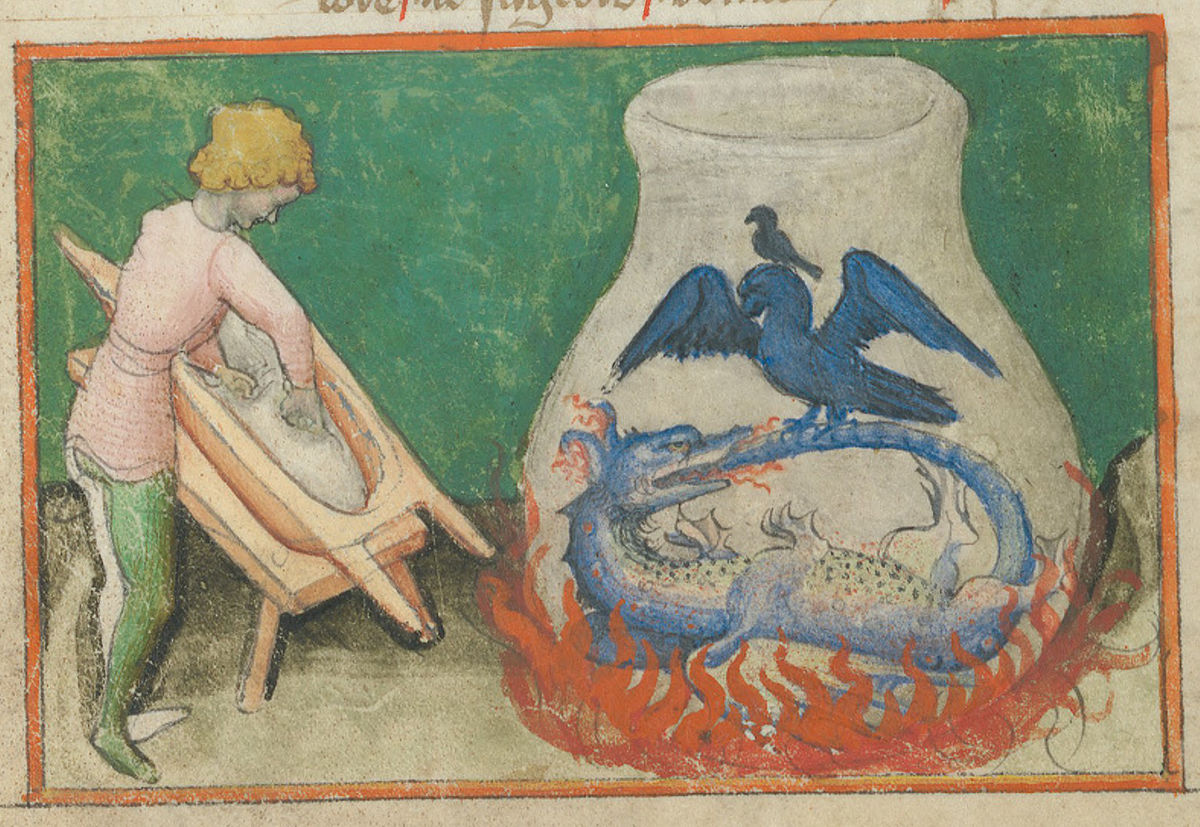


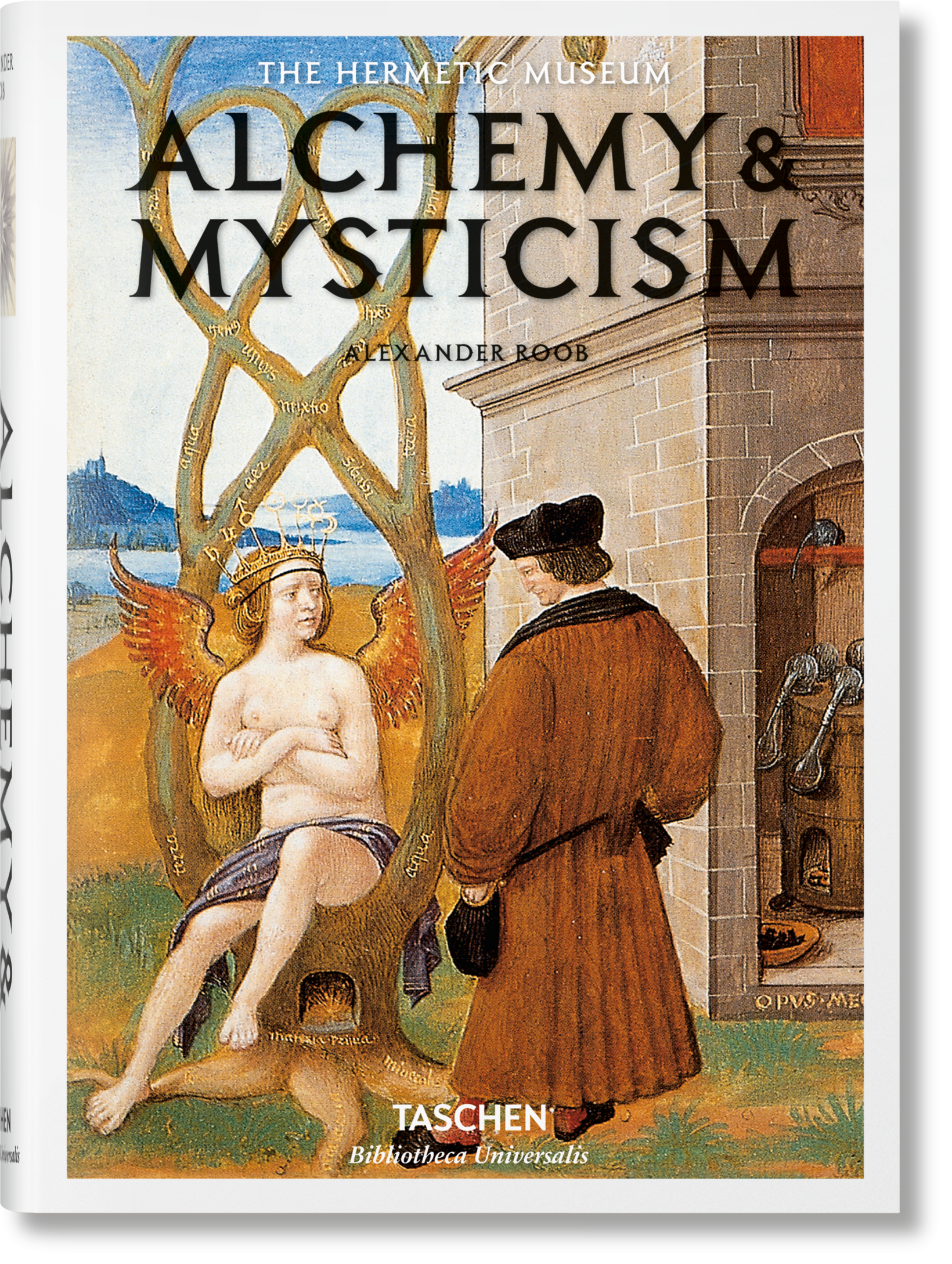


._Seal_with_figure_of_Mani%2C_possibly_3rd_century_CE%2C_possibly_Irak._Cabinet_des_M%C3%A9dailles%2C_Paris.jpg)
.png/220px-Heka_(God).png)

Theme Music
Theme music by
sirobosi frawstakwa

